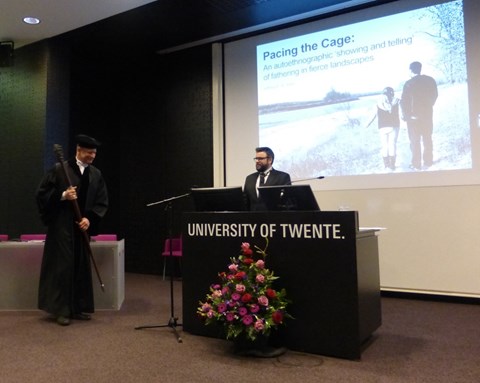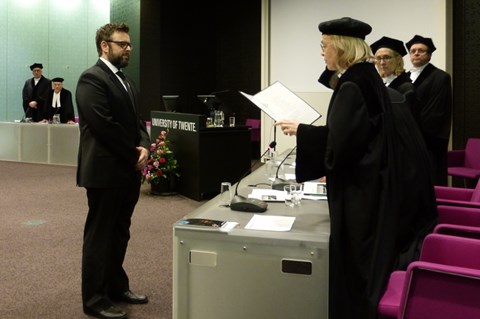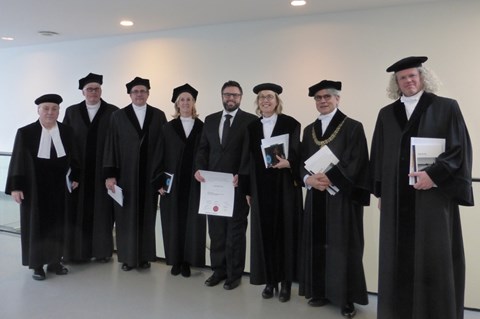Jeff St. John
DISSERTATION TITLE:
Pacing the Cage: An Autoethnographic ‘Showing and Telling’ of Fathering in Fierce Landscapes
How can men participate differently in family and community life to realize equality? How can we redefine the space men occupy – or don’t – in those family and community settings? What does it mean for men to participate equally in these settings? Is there an equality to be found in nurturing and caregiving that allows men and women to move beyond rigid ideas of gender and parenting?
Emerging from a view that research is a relational and creative process of inquiry, this dissertation is an evocative autoethnography of the fathering experience. Located within a broader conversation about what it means to be both a man and a father, this thesis is an exploration of the author’s experience of being and becoming ‘single’ and a ‘single-fathering’ co-parent in a 50/50 joint-shared custody arrangement. The author embraces a stance of inquiry that makes ‘taken-for-granted’ gender discourses accessible by reflecting on how multiple, simultaneous, and embodied relational processes constitute masculinity, the emotional work of fathering, and the discursive world of fatherhood.
Informed by ideas and impressions of relational constructionism, research as a relational process, and writing as method, the author collaboratively invites the reader to bring their own lens to critically reflect on the implications of involved fathering in the fierce landscapes of post-divorce parenting. Through a series of narrative vignettes, poetic texts and scholarly writing, this evocative showing and telling reflects the author’s deep curiosity about the performance of masculinities, how fathers might move towards equality in parenting care work, and finally with how men deal with unhelpful notions of masculinity in community and family settings.
In this unconventional and disruptive reflexive work, the author’s methodological frame “outs” the researcher and the process of creating a text that satisfies the demand for academic rigor and the aesthetic of artful writing in order to compel the reader to make space for dialogue and new possibility. The invitation of this work is toward a more open and nuanced conversation about how men and women can move beyond our seemingly unmovable narratives about what it means to be male, a caregiver, and an equal partner in raising children, transforming communities and empowering women towards gender equality in the workplace.



